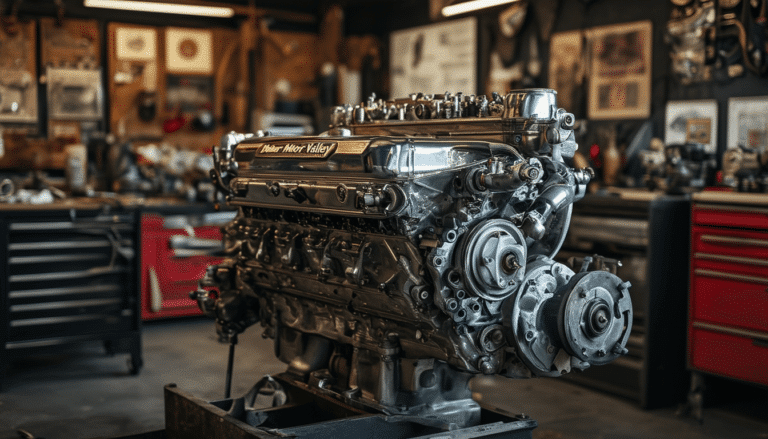Comparing transportation methods to optimize fuel expenditure
In the realm of transportation, fuel cost optimization has become a priority for both companies and individuals. As fuel prices continue to rise, it is essential to compare transportation methods that not only reduce costs but also minimize the environmental footprint. From electric and hybrid vehicles to the efficient use of optimized routes and the implementation of sustainable driving practices, there are multiple strategies that can help maximize energy efficiency and, in turn, improve the profitability of operations. Researching and analyzing these alternatives allows for informed decisions that favor a more sustainable future.
Reducing fuel expenses has become a priority for both businesses and individuals seeking to optimize their resources. This article explores various transportation methods, analyzing their efficiencies and offering practical strategies to minimize fuel consumption. Through a comparative approach, the best transportation options that favor sustainability and economic efficiency will be presented.
Types of Transportation: Comparative Analysis
The first step in optimizing fuel expenditure is understanding the different modes of transportation available. From land, sea, to air transport, each has unique characteristics that affect its efficiency in fuel use. For instance, road freight vehicles tend to have higher fuel consumption due to aerodynamic drag and the weight of the cargo.
Land Transportation
Within land transportation, trucks and vans are common options. However, efficiency can vary significantly depending on the type of fuel used. Gasoline cars typically emit about 2.31 kg of CO2 per liter, while those using diesel generate about 2.68 kg per liter. Optimizing routes and improving driving techniques can significantly reduce fuel consumption in this sector.
Maritime Transportation
Maritime transport is generally more efficient over long distances, especially when transporting heavy loads. Cargo ships that use hybrid propulsion technologies or low-consumption engines help reduce the carbon footprint. Additionally, implementing sustainable work routes and using alternative fuels can result in considerable savings in fuel expenses.
Aerial Transportation
Aerial transportation is considered one of the least efficient methods in terms of fuel consumption per passenger. However, the industry has begun to adopt more sustainable practices, such as using lighter aircraft and developing biofuels. Comparing the cost of air transport with other modalities reveals that, despite its high consumption, it may be necessary for urgent deliveries.
Strategies for Consumption Optimization
In addition to choosing the mode of transportation, it is vital to implement consumption optimization strategies. Some techniques include:
Route Optimization
Optimized routes are key to reducing fuel expenditure. By planning shorter and more efficient journeys, the time on the road is reduced, and consequently, fuel consumption decreases. Current navigation applications and tools facilitate this task by offering real-time alternatives.
Efficient Driving
The way of driving also has a significant impact on fuel consumption. Promoting efficient driving through techniques such as maintaining a constant speed and avoiding sudden accelerations contributes to a more rational use of fuel. Training drivers in these practices can result in substantial savings.
Proper Vehicle Maintenance
Regular and effective maintenance is essential for maximizing fuel performance. Periodic inspections of the vehicles will ensure that all components function properly, thereby reducing unnecessary fuel expenses. Investments in maintenance not only generate savings but also extend the vehicle’s lifespan.
Investments in Efficient Infrastructure
To reduce fuel expenditure in the long term, it is essential to invest in efficient infrastructure. Creating transportation networks that prioritize sustainable modes and improving existing infrastructures can positively impact fuel consumption. Projects that promote the use of technology in transportation planning are also crucial to maximizing efficiency.
The combination of an analytical approach together with the implementation of practical strategies provides companies and drivers with the necessary tools for fuel expenditure optimization. Discovering the best routes, promoting efficient driving, and performing adequate maintenance are important steps towards a more sustainable future.
For more information on how to implement the mentioned strategies, additional articles on efficient infrastructure, sustainable work routes, and tips to save fuel can be consulted.
Comparing transportation methods is essential to identify opportunities to reduce fuel expenses. There are various available options, from private vehicles to public transportation and sustainable logistics methods that can contribute to a significant decrease in operational costs. For instance, using electric and hybrid vehicles, as well as implementing more efficient driving practices, are resources that can markedly impact fuel consumption efficiency.
Additionally, route optimization plays a crucial role in reducing energy consumption. By planning more direct itineraries and avoiding congestion, not only is fuel burning minimized, but emissions of CO2 are also reduced. Tools such as mapping and geocoding allow companies to adjust their logistics operations, facilitating more precise tracking of expenses and the performance of their fleets.
Training drivers in efficient driving techniques is another strategy that should not be underestimated. Encouraging smoother driving, reducing sudden accelerations, and maintaining constant speeds can maximize fuel performance, positively impacting the sustainability of fleets. This approach not only optimizes costs but also promotes greater environmental responsibility among workers.
Finally, it is essential to consider the combination of clean technologies and alternative fuels in the transportation mix. The adoption of innovative solutions, along with the use of applications that monitor consumption, favors informed decision-making and the selection of transport methods that are more profitable and sustainable in the current context.




